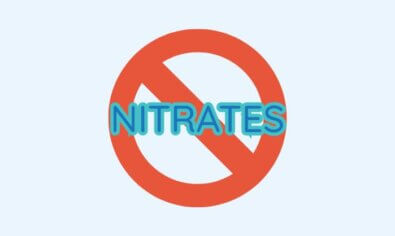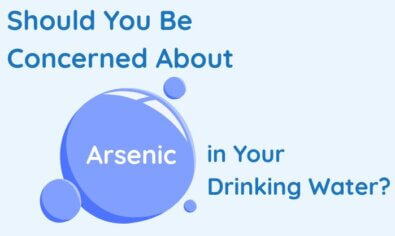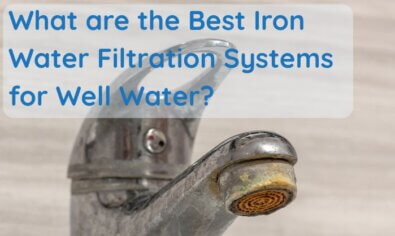What To Look for When Comparing Water Softener Systems
With so many options available, comparing water softener systems can feel overwhelming.
This guide will simplify the process by breaking down key factors like types, brands, and prices to help you make the best decision.
Let’s take a deep dive into:
- The many benefits of a water softener for your household.
- The differences between salt-based, salt-free, dual-tank, and magnetic water softeners and finding the right fit for your needs.
- Learn how popular brands like Culligan, EcoWater, and others stack up in terms of performance, features, warranty, and customer support.
- Understand how pricing varies across types and brands to choose a system that fits your budget without compromising on quality.
By the end of this guide, you’ll have all the tools you need for an effective water softener system comparison to ensure your family’s health and happiness.
Ready to shop for top-rated water softeners right away? Click the link below!
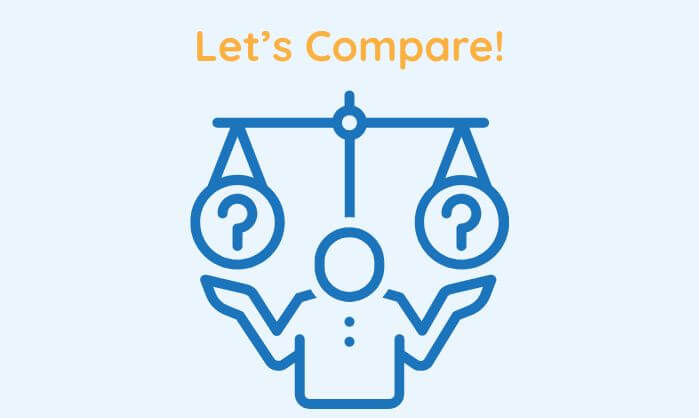
Understanding the Benefits of Water Softeners
Before diving into comparing water softener systems, it’s important to understand why these products are essential for your home and well-being.
Here are some key benefits:
- Improved drinking water quality: Water softeners remove minerals like calcium and magnesium, preventing scale buildup and improving taste.
- Protect your expensive appliances: Softened water reduces wear and tear on appliances like dishwashers, water heaters, and washing machines, extending their lifespan.
- Healthier skin and hair: Soft water prevents dryness and irritation caused by hard water minerals, leaving skin moisturized and hair manageable.
- Cost savings: By reducing mineral content, water softeners lower maintenance costs for plumbing and appliances while minimizing soap and detergent usage.
Now that you understand the key benefits of having a water softener in your home (and the problems hard water can cause), the next step is choosing the right system. But with so many options available, how do you decide?
The best way to start is by comparing water softener systems based on their type.
Comparing Water Softener Systems by Type
Each type works differently and offers unique advantages, so finding the right fit for your household depends on factors like water hardness, maintenance preferences, and budget.
It’s crucial to do your due diligence before making such an important investment.
Salt-Based Water Softeners
Salt-based systems are the most popular option for homes with very hard water. These systems use ion exchange to remove minerals and other harmful pollutants from your water supply.
How they work: Resin beads inside the system attract hardness minerals while releasing sodium ions into the water.
Pros: Salt-based water softeners are highly effective at eliminating scale buildup. They also dramatically improve your water quality.
Cons: Salt-based water softeners require regular salt refills and maintenance. They add trace amounts of sodium to your drinking water, which may not be ideal for some.
Best for: Homes with extremely hard water or large households with high daily water usage.
Salt-Free Water Softeners
Salt-free systems don’t remove minerals but instead condition the water to prevent scale buildup on surfaces like pipes and appliances.
How they work: Use a process called template-assisted crystallization (TAC) to alter mineral properties so they don’t stick to surfaces.
Pros: With no need for salt refills, these products could be considered an eco-friendlier option. They also have low maintenance requirements.
Cons: Salt-free water softeners are less effective in areas with very hard water. In addition, they do not fully soften water for bathing or whole-home water usage.
Best for: Homes with moderately hard water or property owners looking for a less expensive solution.
Dual-Tank Water Softeners
Dual-tank systems are designed for homes with fluctuating or high water demands, offering continuous softened water even during regeneration cycles.
How they work: A dual-tank water softener alternates between two resin tanks — one regenerates while the other provides softened water to your home.
Pros: Dual-tank water softeners can give your home an uninterrupted supply of softened water. They are ideal for large families or changing usage patterns.
Cons: These products can have higher upfront costs compared to single-tank systems. They also take up more space than other water softeners.
Best for: Dual-tank water softeners are a good choice for large households or homes with heavy daily water usage levels.
Magnetic Water Softeners
Magnetic systems are compact devices that are supposed to use magnetic fields to alter mineral properties in hard water without removing them entirely.
While some studies have shown magnetic water softeners have marginal effects, they aren’t very helpful when it comes to reducing scale buildup.
How they work: These devices attach to your plumbing system and use magnets to change how minerals in the water flow behave.
Pros: Magnetic water softeners advertise that they are easy to install and affordable. They also do not require salt or electricity.
Cons: Magnetic water softening devices have limited effectiveness in areas with very hard water. These products are better suited for homes with very mild hard water issues.
Best for: Small homes or apartments with minimal hard water problems, or where space is extremely limited.
Comparing Water Softeners by Brand
Choosing a reputable brand is essential when investing in a water softener system. Let’s compare some of the top brands based on their features, reliability, and customer support.
Home Depot Water Softeners
Many big-box stores like Lowe’s and Home Depot offer water softener products. The biggest draw of a water softener from Home Depot are cost and convenience. Home Depot also offers pickup and delivery options to get the unit you choose to your home.
However, they do not offer installation by a licensed, experienced plumber.
And you won’t find any of the best water softener systems in Home Depot, as the softeners sold here are of low quality. They also only come with a one-year warranty.
Price range: $399–$2,500, depending on model features.
There’s a reason they’re cheaper than other options. They aren’t big enough to effectively soften water for the whole family, and they only last two or three years.
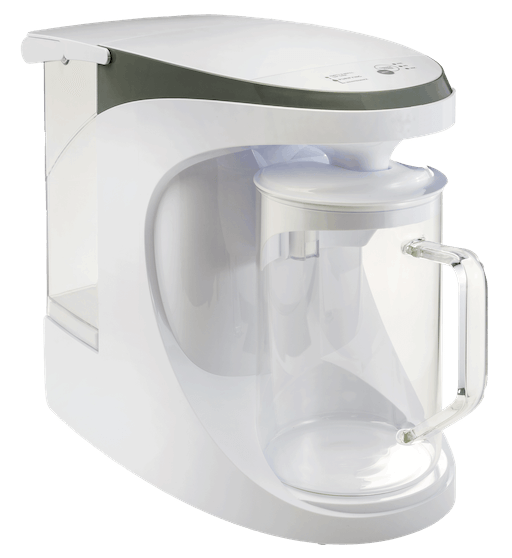
Stop Wasting Money!
Are you spending money every month on Bottled Water for your home or office? That adds up quickly and with inflation, it’s only going to cost more tomorrow.
With the NEW purAsure Counter top Reverse Osmosis System you never have to pay for another case of plastic bottles! Get yours before the price goes up and Enjoy cleaner, healthier water on demand!
Home Depot doesn’t provide free water tests, a regular maintenance program, or salt delivery. In addition, the in-store team members aren’t water treatment experts, unlike the pros of Angel Water.
In short, purchasing from Home Depot or other box stores is risky. Only do it if you’ve done a lot of research, are okay with a lower-quality system, and feel comfortable handling DIY maintenance.
Culligan Water Softeners
Culligan has provided water softener services for over 85 years. In that time, it’s become one of the most well-known providers in the region.
This company is a step up from big-box stores like Home Depot. Unlike those stores, Culligan provides the following:
- Free water tests
- Regular maintenance services
- Salt delivery
Their advanced technology ensures efficient operation and minimal waste during regeneration cycles.
Notable features: Smart technology like Aqua-Sensor® for efficient regeneration; professional installation services available.
Price range: $500–$2,500 depending on model features.
However, there are also a couple of issues to watch out for, such as the quality of service, and the limited product selection.
We can’t vouch for the quality of the support and guidance you’ll receive from the company. Instead, we recommend doing your homework by looking at recent customer reviews.
We also should point out that Culligan only sells Culligan-branded products. So, the selection of water softeners is somewhat limited. If you’re comparing water softener systems in the Chicago area, you may want to look elsewhere.
Consider Costco + EcoWater for Your Water Softener System Comparison
Costco has upped its water softener game recently by exclusively selling high-quality softeners made by EcoWater. The company also partnered with our team at Angel Water to offer its customers expert service and installation.
What’s so great about EcoWater systems? Everything! EcoWater stands out for its innovative designs that prioritize user convenience and efficiency.
Notable features: Smartphone monitoring apps for salt usage tracking and eco-friendly designs that reduce waste.
Price range: Varies widely based on model specifications.
Ideal for: Tech-savvy users who value convenience and cutting-edge technology.
First, EcoWater softeners are NSF/ANSI 44 certified for effective water softening and removing other contaminants like radium 226/228. The systems are also 100% made in America, which means you won’t have to worry about any subpar parts as you do with lower-quality softeners.
Second, EcoWater designs its water softeners with some of the most advanced and convenient features in the industry. For example, you can connect an EcoWater softener to your smartphone and monitor its status. It will also alert you when salt refills are needed.
Most of all, EcoWater water softening systems are much more durable and long-lasting than the softeners you find in big box stores.
Built to last 10+ years, these products can easily handle softening water for your entire family. While they may cost more than those lesser softeners, it’s worth it for the peace of mind they provide.
Costco also partners with our team at Angel Water to handle the other essential services. These include free water tests and consultations, licensed installation, maintenance, and more.
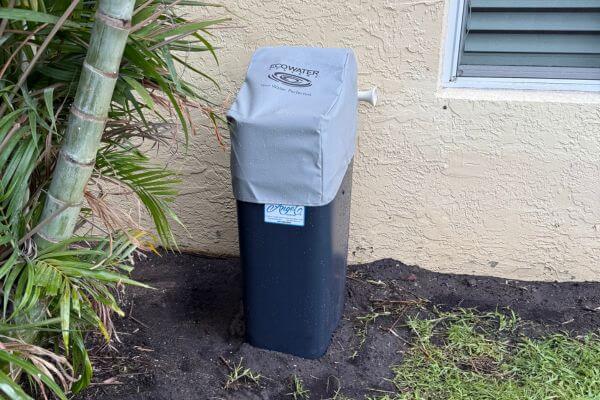
Water Softener Price Comparison
Price is often one of the deciding factors when comparing water softener systems. Here’s what you need to know about pricing across different types:
Salt-Based systems: Typically range from $500–$2,500 depending on capacity and smart features like automatic regeneration scheduling.
Salt-free systems: Prices start at around $400 but may go higher for advanced eco-friendly models designed for larger homes.
Dual-tank systems: Generally, these cost $800–$3,500 due to their efficiency and ability to provide continuous softened water.
Magnetic systems: The most affordable option comes in at under $300 but is less effective in areas with very hard water.
When comparing prices, consider long-term costs such as maintenance, salt refills (for salt-based systems), or additional filtration needs.
How to Choose the Best Water Softener System
Comparing water softener systems doesn’t have to be complicated when you know what factors matter most: type, brand reputation, price point, and long-term maintenance costs all play a role in making the right choice.
If you have very hard water or a large household, a salt-based or dual-tank system may be ideal for you due to its effectiveness and efficiency under heavy usage conditions.
For those seeking eco-friendly alternatives or low-maintenance solutions, salt-free systems offer excellent benefits without requiring regular upkeep.
Finally, magnetic systems are best suited for small homes or apartments looking for an affordable way to address mild hard-water issues.
Still can’t decide? The licensed plumbers of Angel Water are here to help homeowners in the Chicago and West Palm Beach communities find the most effective way to enjoy fresh, pure drinking water. Schedule your free water test today!
Want Softer Water? Schedule an Appointment Now!
Find out how a water softener can help protect your home from hard water damage. Schedule an appointment with our water specialists today to explore the best solutions for your home.

